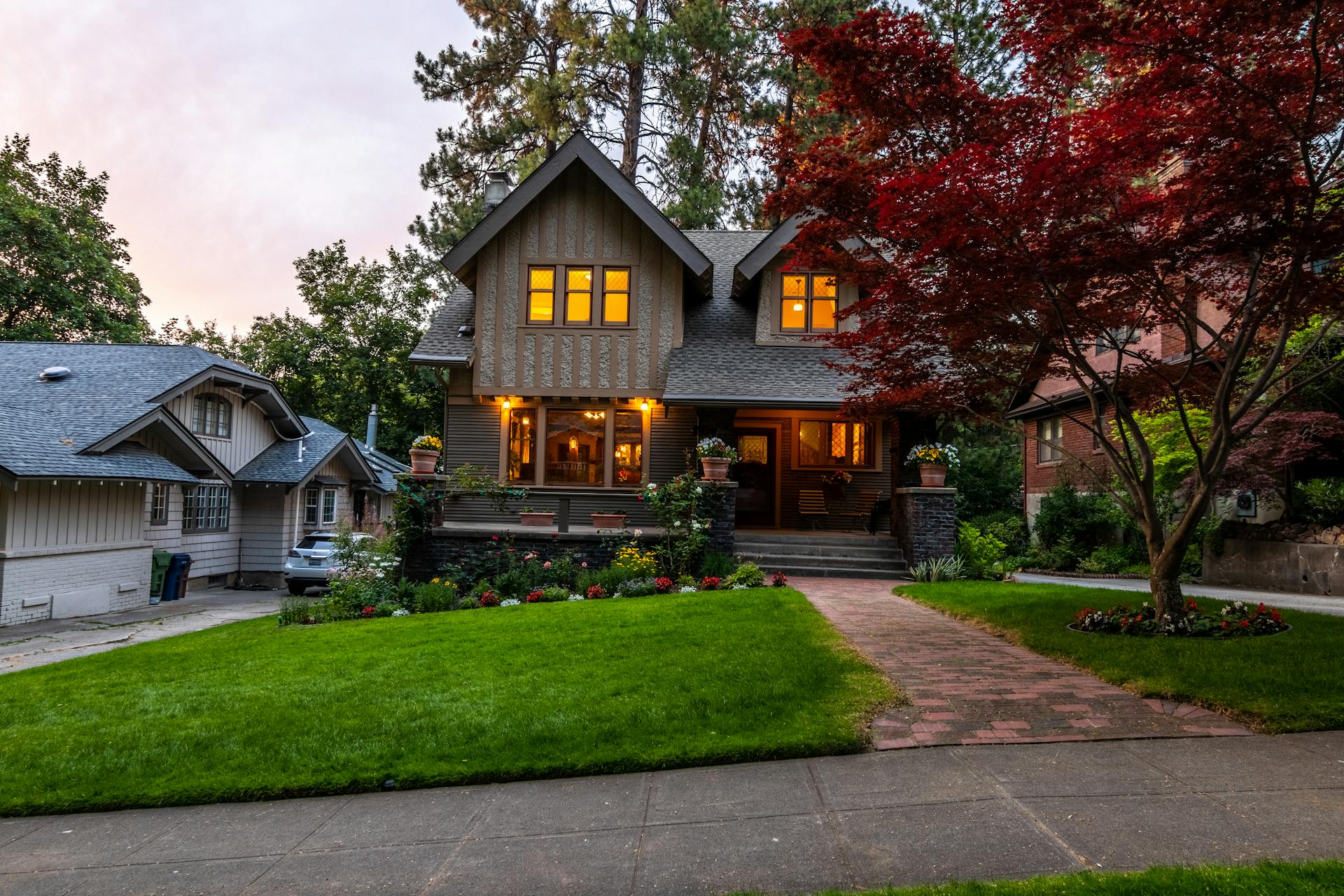
If you're a real estate investor, you've probably heard of cap rate. It's a valuable tool that can help you evaluate properties and find good deals. But what exactly is cap rate? And how can you use it to your advantage? In this article, we'll define and explain cap rate in simple terms so that even those new to the world of real estate can understand it.
Cap rate, short for capitalization rate, is a sophisticated system based on evaluating commercial real estate loans. Rocket Mortgage offers commercial real estate loans for holdings you'll want to purchase as investment properties. Real estate investors use cap rates to evaluate properties and find good deals. Essentially, cap rate is a measure of a property's potential return on investment (ROI). By calculating the cap rate, investors can determine whether a property is worth investing in based on its current income and market value.
On April 20th, 2023, many real estate investors will be looking at their portfolio and considering which properties are worth holding onto or selling. Understanding how to calculate and utilize cap rates could make all the difference in finding success in the industry. So let's dive in and explore the ins and outs of cap rates!
Check this out: Adjustable Rate Mortgage
What Is A Cap Rate In Real Estate?
Cap rates are a widely-used metric in the real estate industry that help investors determine the profitability of a property asset. The cap rate is calculated by dividing the property's net operating income (NOI) by its market value, providing valuable insight into how much return on investment (ROI) an investor can expect to receive. Cap rates are commonly used for both residential and multiple commercial real estate properties for investment purposes.
There are several other metrics that investors use alongside cap rates to make informed decisions, including gross rent multiplier (GRM), internal rate of return (IRR), and other factors including the property's individual characteristics. Experts recommend applying online for expert recommendations on what factors to consider when evaluating a property's cap rate and potential ROI.
Real interest rates play a major role in determining cap rates, as they affect the cost of borrowing money and ultimately impact an investor's bottom line. Understanding cap rates is essential for any real estate investment investor looking to maximize their returns and make informed decisions about where to invest their money.
When And When Not To Use Cap Rates

Cap rates are an important tool for real estate investors comparing and evaluating potential properties. Cap rates, or capitalization rates, help to determine the potential returns on investment rental property by measuring the net operating income (NOI) of a property against its purchase price.
However, it is important for real estate investors to remember that cap rates are not always the best indicator of a property's value. When buying multiple commercial properties, it is important to evaluate potential properties don't forget to determine risk levels involved. High cap rates may indicate high risk levels, and low cap rates may indicate lower risk levels. Therefore, it's crucial to consider other factors such as location, market trends, and tenant demographics before making any real estate investment decisions based solely on cap rate.
1. See What You Qualify For
If you're a first-time homebuyer, it's important to know what you qualify for before starting the home loan process online. By filling out a home description and credit profile, Rocket Mortgage can determine your cap rate and provide information about your eligibility for a mortgage. After providing your contact information, congratulations based on your qualifications will automatically pop up on the sign-in page. Rest assured that Rocket Mortgage follows all privacy policies and resolves claims related to the Telephone Consumer Protection Act. Ready to learn more? Just click the tab!
How to evaluate your property with its capitalization rate?
How to evaluate your property with its capitalization rate? The answer is simple: by using the cap rate. Capitalization rate helps in property evaluation, particularly when buying properties. For instance, a 10 percent capitalization rate means that you can expect a 10 percent profit on your investment placing. Let's say that you invest 1000 dollars, so you can make 100 dollars.
The 10 percent return may seem low, but it all depends on the market and the type of property investment. Moreover, there is a simple formula to calculate the cap rate based on net income and property value - mathematical expression gives us an insight into how much we should pay for a given property when considering its potential income. As a result, we can make sure that our investment will be profitable.
In conclusion, cap rate is an essential tool for evaluating the profitability of a real estate investment. Therefore, before deciding to buy any property or investing in one, it's crucial to take into account the previous formula and calculate the capitalization rate correctly. By doing so, you'll be able to determine whether investing in a particular property makes financial sense or not.
Discovering the Metro Real Estate Market's Average Cap Rates
When it comes to real estate investing, cap rate is a crucial metric to consider. A cap rate, or capitalization rate, represents the expected return on investment for a specific property. In other words, it's the percentage of the property's value that can be expected as income each year. Typical cap rates vary depending on location and property type, but they generally fall within a certain range. It's important to keep in mind that cap rates change over time due to various factors such as market conditions and interest rates. By staying up to date with average cap rates in your local metro area, you can make informed decisions about which properties are worth investing in.
Unlocking the Truth: The Drawbacks of Capitalization Rate
Capitalization rate, or "cap rate" for short, has been a convenient device for property evaluation for many years. Employing cap rates, real estate investors can quickly determine a property's value based on its income-generating potential. However, there is a severe flaw in relying solely on cap rates to finance house purchases or evaluate investment opportunities.
Cap rate simply measures the ratio between a property's net operating income and its market value. It does not consider debt payment or debt-related ratios such as mortgage loans. This limitation makes it an inadequate tool for long-term investment strategies and short-term property investments that require more comprehensive evaluations. Additionally, cap rates are heavily influenced by prevailing interest rate environments and external factors such as the 2008 financial crisis where policy rates hit the zero-level bound which led to unusually low range of interest rates in the US; during this period, cap rates dropped significantly and induced house price growth in cities like San Francisco.
To use cap rates correctly, real estate investors need to understand their limitations and use them only as a quick benchmark for property evaluation. Cap rate should be combined with other metrics such as cash-on-cash investment ratio to get a more accurate picture of a property's profitability potential. Understanding the prevailing interest rate environment and how monetary policy affects cap rates is also critical for confidently determining whether a good cap rate means an excellent investment opportunity or just another short-term gain that may not sustain itself over time.
How to Determine a Desirable Cap Rate for Your Investment?

Determining the ideal cap rate for your investment can be a daunting task, but it is vital to ensure that you receive profitable returns. A universally good cap rate does not exist as market dictate the cap rate number, which is determined by the level of risk, location, and demand for the property. As a general rule, higher cap rate properties have lower valuations, while lower cap rate properties have higher valuations.
Typically investors view properties with a lower net operating income (NOI) at a higher valuation, resulting in a lower cap rate. On the flip side, higher NOI properties tend to have a lower valuation with a higher cap rate. An acceptable cap rate varies based on individual comfort levels and risk tolerance. However, it is crucial to keep in mind that if you set your acceptable cap rate too low or too high, you may quickly pass on potential investments that meet your criteria or invest in properties that don't meet your risk tolerance.
It is essential to consider both short-term and long-term goals when determining an acceptable cap rate for your investment. If you need quick returns on your initial investment, then looking for higher-cap-rate deals might make sense. However, if you plan on holding onto the property for an extended period, investing in lower-cap-rate deals could provide more significant returns over time. Ultimately there are no predetermined rules to follow when choosing an acceptable cap rate; it all depends on your assessment of the risk-reward ratio of each investment opportunity.
What is the cap rate definition?

Put simply, cap rate definition refers to the measure of profitability in a real estate investment property. It is the annual rate of return that an investor can expect to earn on their initial investment by purchasing the property outright.
Cap rate is easily calculated by dividing the net cash flow generated from the property by its market value. This formula allows investors to determine whether or not a particular investment will make money for them in the long run. Typically, investors look for cap rates that range from 5-10% and aim to recoup their initial investment within ten years. From the eleventh year onwards, any profits made from the property can be considered "pure profit" as they have exceeded the initial investment. Understanding cap rate is crucial for investors looking to maximize their returns and make informed decisions when it comes to real estate investing.
Frequently Asked Questions
What does cap rate means?
Cap rate, short for capitalization rate, is a metric used in real estate to measure the return on investment of a property. It's calculated by dividing the net operating income by the current market value or purchase price of the property.
What factors affect the rate cap?
The rate cap is affected by various factors such as inflation, market demand, and government regulations. These factors can cause the rate cap to increase or decrease, ultimately impacting the cost of borrowing for consumers and businesses.
What is the formula to calculate cap rate?
The formula to calculate cap rate is net operating income divided by property value. Cap rate is used to determine the potential return on investment for a real estate property.
What is a good rate cap?
A good rate cap is a limit placed on the interest rate increase for an adjustable-rate loan. The cap should be based on your ability to repay and the market conditions. It's important to choose a rate cap that offers protection against future rate hikes but also allows for potential savings in the long run.
What are the steps to calculate a property's true cap rate?
To calculate a property's true cap rate, you need to divide the net operating income (NOI) by the current market value or purchase price. Subtract any additional expenses from the NOI before dividing to get an accurate figure.
Featured Images: pexels.com


